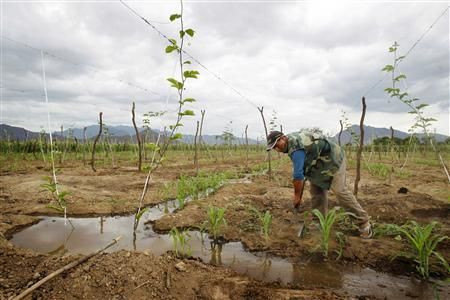Cuba is experiencing longer droughts, warmer temperatures, stronger storms, and higher sea levels due to climate change, just like the rest of the Caribbean. The already challenging rainy season has gotten longer and wetter, said reports.
In Cuba's troubled economy, agriculture has always been a relatively bright spot. With regard to food producers, the communist government has been comparatively liberal.
Cuba has ample sun, water, and soil. By changing the way nature functions in the Caribbean, however, climate change is tinkering with the raw elements of productivity.
Cubans are leaving the island in the highest numbers in decades.
In the fiscal year 2022, U.S. authorities intercepted roughly 221,000 Cubans at the U.S.-Mexico border. According to sources, there was a 471 percent increase from the previous year.
Like everything else in Cuba, the outflow is being influenced by a complicated mix of domestic politics, economic policy, and international ties.
A part of what’s driving the flow is climate change, which cost Cuba $65.85bn in gross domestic product between 1990 and 2014 alone, 9 percent of its total GDP, according to Dartmouth College.
“Caribbean economies, tourism, agriculture, and fishing, are at the forefront” of climate change, Donovan Campbell, a climate-change expert at the Jamaica’s University of the West Indies, told The Associated Press.
Earlier this year, a Category 3 hurricane named Ian tore into western Cuba, leaving three people dead, 14,000 homes destroyed, the electrical grid compromised, and the country's most valuable tobacco farms in ruins.
Cuba was already in one of its worst economic, political, and energy crises in decades, due to the coronavirus pandemic and the Russian war with Ukraine, among other factors.
By 2030, Cuba has promised to source over a quarter of its energy from renewable sources. But as of now, the nation remains dependent on oil from allies Russia and Venezuela, getting less than 5% of its energy from renewable sources.
The U.S. trade embargo “impedes us from accessing the resources we could have that would make it possible for us to recover from these events as quickly as possible,” said Adianez Taboada, vice minister of Cuba’s Science, Technology and Environment Ministry.

© 2025 Latin Times. All rights reserved. Do not reproduce without permission.



